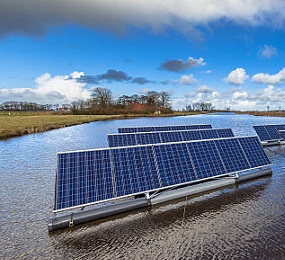The global floating solar market is experiencing rapid growth, driven by the increasing demand for renewable energy solutions. However, navigating the complex regulatory landscape presents significant challenges for stakeholders in the industry.
Diverse Regulatory Frameworks:
One of the primary challenges in the global floating solar market is the diversity of regulatory frameworks across different regions and countries. Regulatory requirements related to permitting, environmental impact assessments, land use regulations, and grid connection vary widely, posing obstacles to project development and investment.
Policy Uncertainty:
Another challenge facing the floating solar industry is policy uncertainty. Changes in government policies, incentives, and tariffs can significantly impact the economics of floating solar projects. Uncertainty surrounding future policy directions can deter investors and slow down market growth.
Environmental Considerations:
Environmental regulations and considerations also play a crucial role in the development of floating solar projects. Regulations related to water quality, biodiversity conservation, and ecosystem protection must be carefully navigated to ensure compliance and mitigate environmental impacts.
Strategies for Navigating Regulatory Challenges
Despite the complexities, there are strategies that stakeholders in the floating solar industry can employ to navigate regulatory challenges effectively:
1. Engagement and Advocacy: Engaging with policymakers, regulators, and stakeholders to advocate for favorable policies and regulatory frameworks that support the development of floating solar projects.
2. Risk Assessment and Compliance: Conducting thorough risk assessments and compliance checks to identify regulatory requirements and ensure adherence to legal frameworks throughout the project lifecycle.
3. Partnerships and Collaboration: Collaborating with local governments, utilities, and communities to foster partnerships and build consensus around floating solar projects, facilitating smoother regulatory approval processes.
4. Adaptation and Flexibility: Remaining agile and adaptable to evolving regulatory landscapes by staying informed about policy changes, anticipating regulatory trends, and adjusting project strategies accordingly.
In conclusion, navigating regulatory challenges is essential for unlocking the full potential of the global floating solar market. By addressing regulatory complexities with strategic planning, collaboration, and compliance, stakeholders can overcome obstacles and capitalize on opportunities for sustainable growth in the floating solar industry.
To register or learn more about the Forum please check here: https://bit.ly/46Vw6nm
For more information and group participation, contact us: [email protected]
















